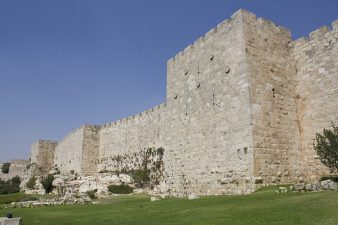 Israel’s offshore oil resource are larger than previously thought, pitting the state against oil tycoons defying demands for a larger public share of oil revenues. In the context of fossil fuel-induced climate change, does the development of petroleum resources have any justification at all?
Israel’s offshore oil resource are larger than previously thought, pitting the state against oil tycoons defying demands for a larger public share of oil revenues. In the context of fossil fuel-induced climate change, does the development of petroleum resources have any justification at all?
Last week, a consortium including the American energy corporation Noble Energy and Israel’s Delek Group announced that petroleum reserves in the Tamar field off the Israeli coast are 15 percent larger than previously thought. Together with the Alon A and Alon B fields, potential finds at the Ruth fields and large finds believed to be found at the Leviathan natural-gas site, Israel’s petroleum resources appear to be full of potential and ripe, it seems for the taking.
Yitzhak Tshuva, head of the Delek Group is reported to have declared at a press conference reported in Haaretz announcing the development: “This is a day of celebration for the entire state of Israel, sufficient local energy for 100 years,”
Gideon Tadmor, chief executive of Avner and chairman of Delek Drilling was no less celebratory: “This an important building block in the development of Israel’s energy independence. We and our partners will operate together with the state to realize this potential in order to strengthen Israel’s economy and geo-political standing,” he said.
In the eyes of these oil men and their American partners, their find should be regarded as interests of state and of vital strategic importance to Israel. There assessment involves two issues that are, truly, crucial to Israel’s future. However, the stand taken by Israel’s big oil interests are contrary to Israel’s strategic concerns.
“Oily” Interests to Minimize Royalties
The first issue involves the opposition and active lobbying of the oil interests against a rise in the amount of royalties they will have to pay to the state. Israel’s current royalty rates are low, offering high returns to the oil corporations relative to international standards. The Shishinsky Committee which the Ministry of Finance established on April 12 is charged with reviewing the royalty schedule for possible revision.
Delek’s Tshuva has stated that any infringement on the royalty schedule, which was formulated in 1952, would constitute an attack on private enterprise, apparently a holy cow in his eyes.
But the billionaire whose vast holdings include hotels in Las Vegas and New York, a desalination plant in Hadera, real estate and gas station chains in Israel and abroad, and other Israeli petroleum interests is not alone in challenging the government’s deliberations on increasing royalties.
The pressure, which is being applied to the Finance and Infrastructures ministries is also being muscled by the US government, which is backing American oil interests “with White House officials and US senators having brought the matter up with the office of Prime Minister Benjamin Netanyahu, according to sources from both countries.”
In this context, American-Israeli big oil interests are positioning the economic control of this mineral resource in the classic terms of oil barony characteristic of the oil industry’s game plan in the Middle East during the twentieth century. This attempt alone, with all its economic and political implications, is sufficient cause for opposition by Israel’s social greens – environmental advocates who understand that a sustainable future requires a an alternative system to free-market economics.
Oil Strategy: A Harmful Plan for Israel’s Future Energy Needs
But the gross profiteering of the oil interests and its heavy-handed attempts to resist reform is not the only reason that social greens should oppose the development of off-coast petroleum resources. There are deep environmental reasons that are equally as compelling for curbing private development of the oil and gas fields.
The kind of “energy independence” being peddled by the big interests represents 20th century thinking in a 21st century context – when the disastrous effect of fossil fuel use on the global environment is abundantly clear.
During the early 1970s when the Organization of the Petroleum Exporting Countries (OPEC) declared their claim to independence from the western oil companies and increased their political power through price gouging, Israelis lamented that Moses had not lead the Hebrews a bit further eastward out of Egypt. Finds such as those at the Tamar and other fields off Israel’s shore would have been considered a blessing — then.
In today’s world where climate change threatens the planetary future, progressive governments and forces are seeking energy alternatives to fossil fuels and private green tech companies have proven that this can make for profitable business.
Given Israel’s abundance of solar energy and prospects for other energy sources compatible with environmental welfare, it is there – and decidedly not the petroleum resources that the oil industry wants to mine off our coast (and derive maximum profit by so doing) – that Israel’s national interest are found.
In the shadow of the British Petroleum (BP) oil spill in the Gulf of Mexico and the ecological disaster it continues to spawn Israel’s social greens should draw a red line against the assertiveness of the country’s big oil interests.
If we are able to mobilize at this critical moment, perhaps we can spare ourselves and the rest of the world the multiple untoward effects, economic, political as well as environmental that the petroleum industry has produced elsewhere for nearly a century.
Above image via jurvetson




This is a very nice informative article, thanks for sharing the useful information
Aircraft Paint Protection